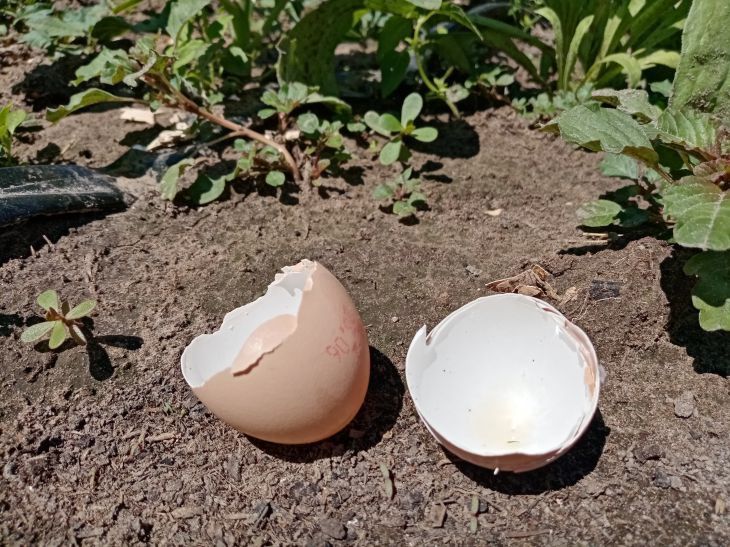What vegetables don't like eggshells: recommendations for summer residents
Eggshells are often used in gardening as an organic fertilizer due to their high calcium content.
It helps reduce soil acidity and improves its structure.
However, not all plants respond positively to the addition of eggshells to the soil, notes Anastasia Kovrizhnykh, an expert of the online publication BelNovosti, an agronomist and landscape designer.
Excess calcium can negatively affect the growth of some vegetable crops by disrupting the balance of micronutrients in the soil.
Understanding which vegetables don't like eggshells helps you avoid mistakes in growing them and get a better quality harvest.

Tomatoes and eggshells
Tomatoes are one of the crops that do not always react positively to eggshells.
While calcium is beneficial in preventing blossom-end rot, too much of it can interfere with the absorption of other nutrients, such as magnesium and potassium.
This, in turn, can slow down plant growth and reduce their yield.
It is important to add eggshells in moderation and to check the soil regularly to prevent nutrient imbalances.
Pepper and its reaction to calcium
Peppers, like tomatoes, are crops that are sensitive to excess calcium.
Care must be taken when adding eggshells to the soil for growing peppers.
Excess calcium can cause magnesium deficiency, resulting in leaf chlorosis and stunted growth.
To prevent such problems, it is recommended to use complex fertilizers containing balanced doses of microelements and add eggshells in small quantities.
Legumes and their sensitivity
Legumes such as beans and peas can also respond negatively to excess calcium in the soil.
Eggshells, rich in calcium, can disrupt nitrogen metabolism in the roots of these plants, since legumes have a symbiotic relationship with nitrogen-fixing bacteria.
Excess calcium disrupts the soil microflora, which leads to a decrease in the efficiency of nitrogen fixation.
Therefore, for legumes, it is recommended to limit the use of eggshells and use other methods of soil enrichment.
Root Vegetables and Excess Calcium
Root crops such as carrots and beets can suffer from excess calcium in the soil.
Adding eggshells in large quantities can lead to soil compaction, which makes it difficult for roots to grow and impairs their development.
Calcium can also interact with phosphorus, reducing its availability to plants, which negatively affects the growth of root crops.
It is recommended to use eggshells in combination with organic materials that improve the soil structure and promote better drainage.
Leafy Vegetables and Calcium Imbalance
Leafy vegetables such as spinach and lettuce are sensitive to calcium levels in the soil.
Excess calcium can lead to imbalances of other micronutrients such as magnesium and iron, causing chlorosis and reducing crop quality.
Eggshells can be helpful in increasing calcium levels, but should be added in moderation and with caution.
It is best to combine it with other organic fertilizers that provide balanced nutrition for plants.
Tips for Using Eggshells
To successfully use eggshells in gardening, it is important to follow a few guidelines.
Firstly, the shells should be finely ground before adding so that they decompose faster and are absorbed by plants.
Secondly, it is recommended to conduct regular soil tests to monitor the levels of calcium and other micronutrients.
This will help avoid nutrient imbalances and provide optimal conditions for the growth of different crops.
Earlier we told you how to make fertilizer from mown grass.
